Is My Cat Stressed? (Do I have a Stressed Cat and Spotting Signs of Stress in Cats)
Share:
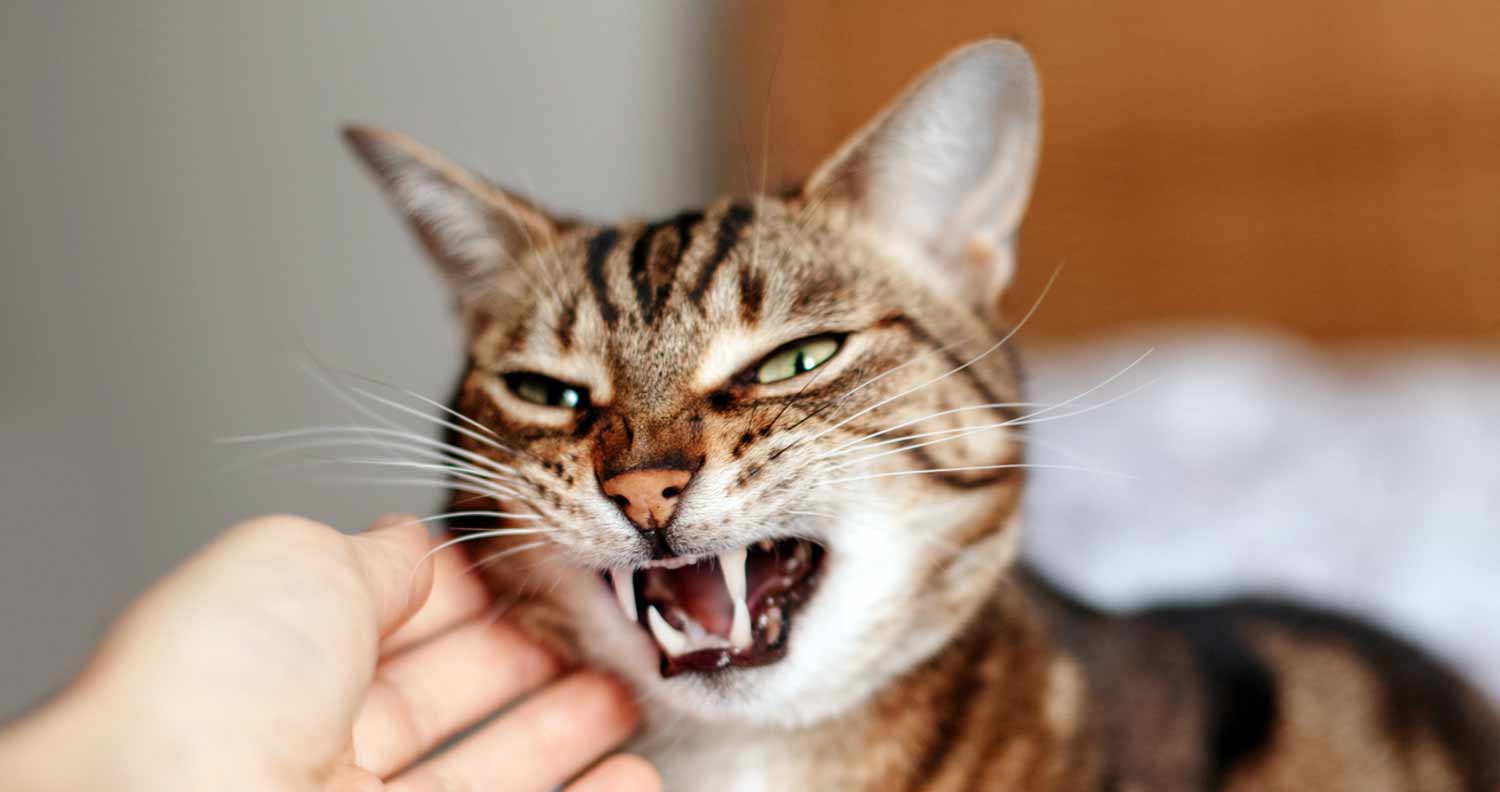
Figuring out, 'is my cat stressed' can always be a bit tricky. But it is important you figure out these cat stress symptoms as stress can have devastating effects on cats.
Aside from affecting their physical health (weight loss, weaker muscles), it may also lead to behavioral deviations, like avoiding social situations, refusing to use the litter box, and behaving aggressively towards their owner and cats from the same gang.
When you notice a change in your cat's body language or in your cat's behavior it's important to look first for underlying health conditions that may have caused it, then try to identify potential stressors.
Do this swiftly before a health issue sets in.
Traumatized Cat Symptoms
Cats can't stand environmental changes. Whether it's a minor change, like a new painting on the wall, or a major change, like moving to a new house, your kitty will have a hard time dealing with it.
Here are some of the main stress triggers that cause an anxious cat.
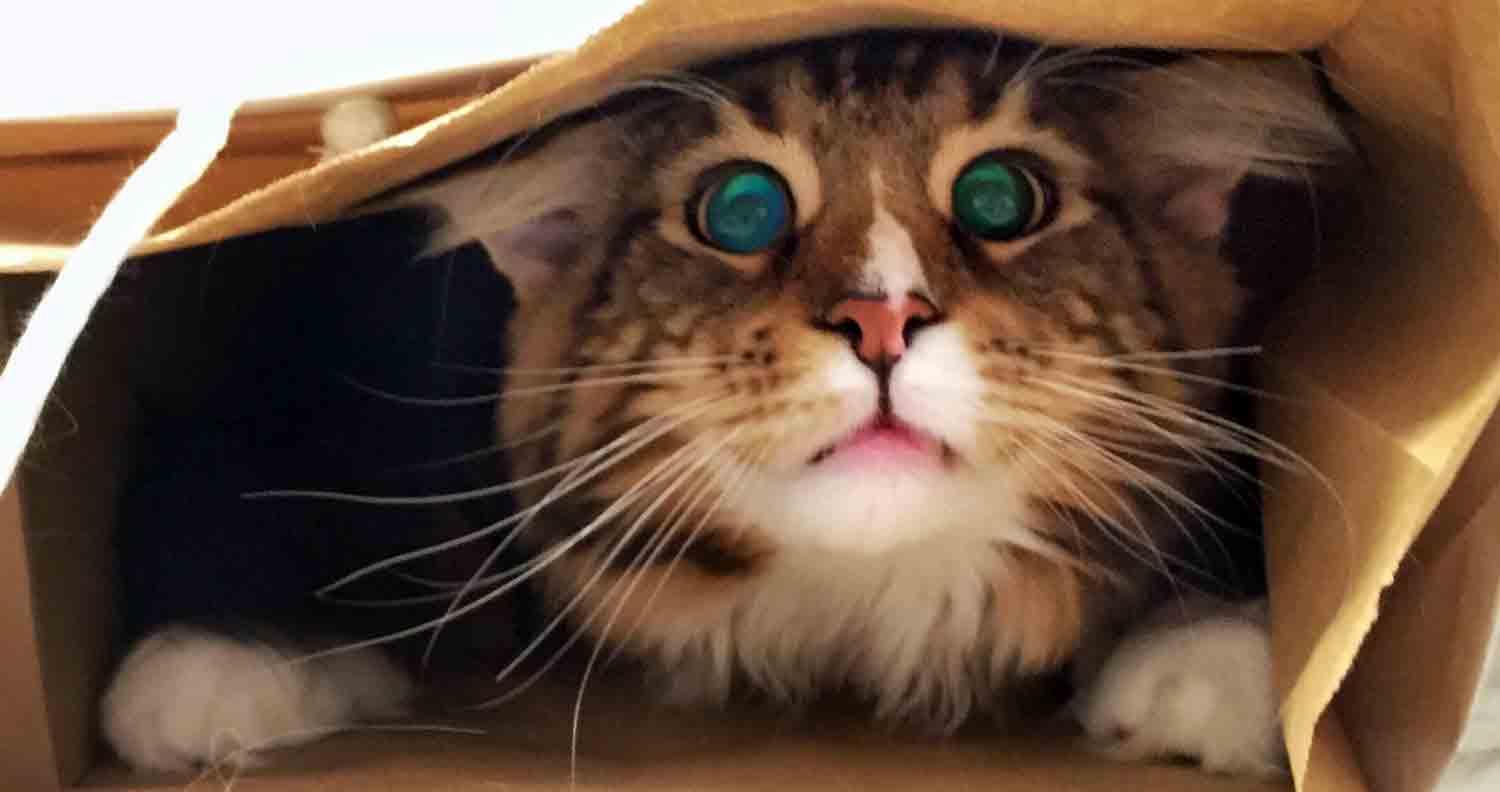
Read this next: Petplan Pet Insurance Review: Everything You Need to Know
1. Vet visits
Cats are afraid of veterinary visits. This can cause a stress response when they understand that a veterinarian's appointment is around the corner.
To make them less suspicious about what's going to happen, and reduce signs of stress or signs of anxiety, transport them in a crate covered with a light blanket to the veterinary clinic.
2. New Additions
A new family member is a stressful event for cats.
Whether it's a baby, a spouse, or a new pet, your cat will consider them as a threat to its life, and feline stress can kick in.
This is a common cause of stress in cats.
To avoid the shock of a sudden introduction, you should prepare your feline for the new family member in advance.
Try to introduce your spouse or dog as smoothly as possible to prevent a stressful situation for your sensitive furball.
Let it get used to the newcomer at its own pace. Don't force it into things that may cause it emotional discomfort.
3. New House
While moving to a new house can be a tragedy for your cat, there are some things you can do to make sure your cat doesn't even notice it is in a new home.
The key to success lies in preserving the environment your kitty has been used to.
Before moving, go to the new house and set up a room with your feline's favorite blankie, cat bed, cat tree, litter box, feeding bowl, toys, and decorations.
Make sure there is a suitable hiding place or two. Cats like to hide away until familiarity relaxes them a bit.
Keep your cat closed off in this safe and familiar room while you get the rest of the new household ready for living.
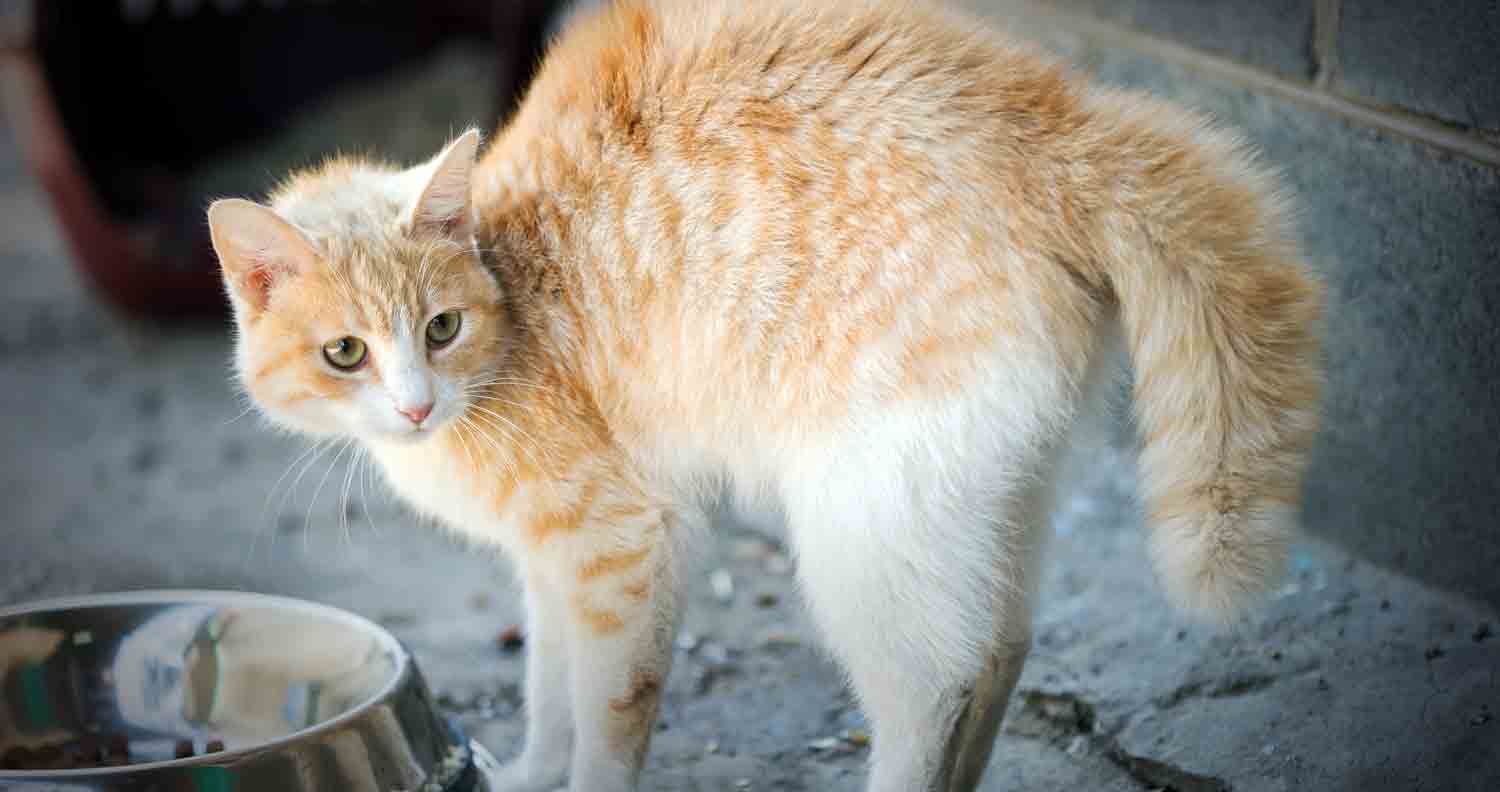
Read this next: Why Is My Cat Scared All Of A Sudden?
4. New Schedules
If you get a new job, try to prepare your household cat for not being able to see you for long.
A few days before starting work, leave the house for 3 hours.
Next day spend 4 hours away from home and so on until you get your kitty used to long periods of separation.
It's highly important that you play with your kitty and spoil it with favorite treats upon your return.
5. Parties
Loud parties are particularly disturbing for cats.
Steer clear!
They feel a great discomfort from the doorbell ringing constantly, loud music, talking, shouting, laughter, bangs of glasses and fireworks.
If your party has all these components included, be sure your cat will have one of the worst nights in her life.
6. Territory
Cats are territorial creatures and may pick a fight to defend their territory.
And when they can't catch the perpetrator, they go wild.
This is what happens when a cat watches out the window and all of a sudden a strange cat, bird, squirrel, or dog shows up in your yard.
Frustrated that it can't go out to chase the intruder away from its territory, the cat will potentially start to generate stress or aggressive behavior.
This phenomenon is called re-directed aggression.
To prevent it from happening again, limit your feline's window perches and try to create obstacles to discourage external, strange cats from invading your property.
Some ideas include installing a fence or using a commercial cat repellent.
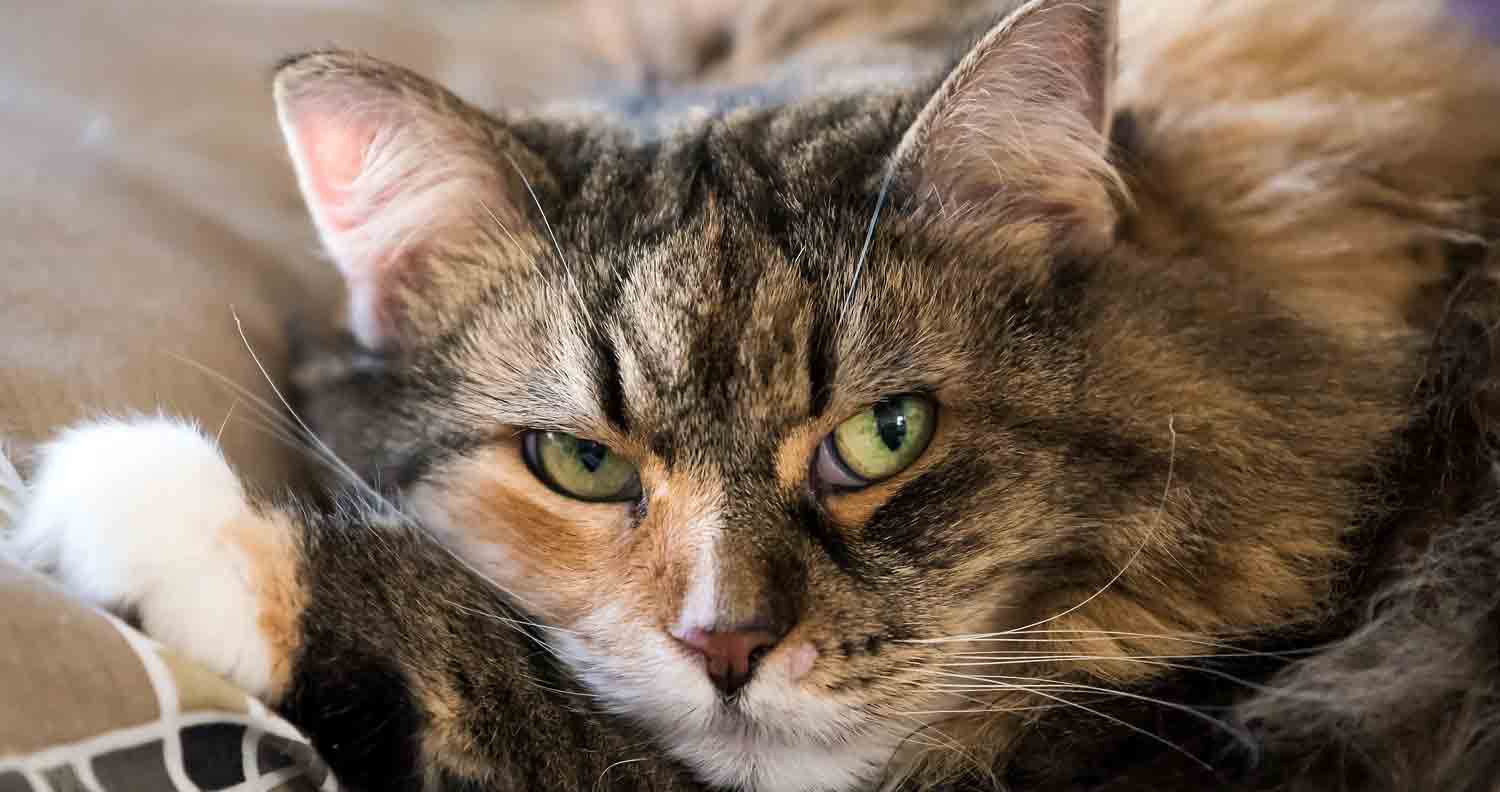
Read this next: How to Stop a Kitten From Biting
Stressed Cat: Fear Trigger
Since fear is one of the strongest feelings in any being, including cats, most if the cat stressors result from fear.
Hurricanes, thunders, lightning, earthquakes, and other calamities are stressors associated with fear.
Cats are naturally afraid of these, partly because they are unpredictable, so it's important to develop an emergency plan in advance to save your kitty in case of a disaster.
As far as predictable fear-related stressors are concerned (loud parties, fireworks festivals), you have more opportunities to save your cat from stress.
Plan ahead of time where to shelter your feline and how to keep it entertained during the party.
Your best bet is to close it off in a separate room with good insulation so loud noise can barely be heard.
Also, supply your furball with cat toys, food, and a litter box to make sure it has all essentials needed to survive the night.
Cat Bullying
Another stressor deals with the fear of being bullied by a bigger cat or stronger cat.
If you have two cats or a multi-cat household, one of which is a bully, give the victim kitty a separate playing area and a separate litter box.
Also, provide it with multiple opportunities to escape the room in case of an attack.
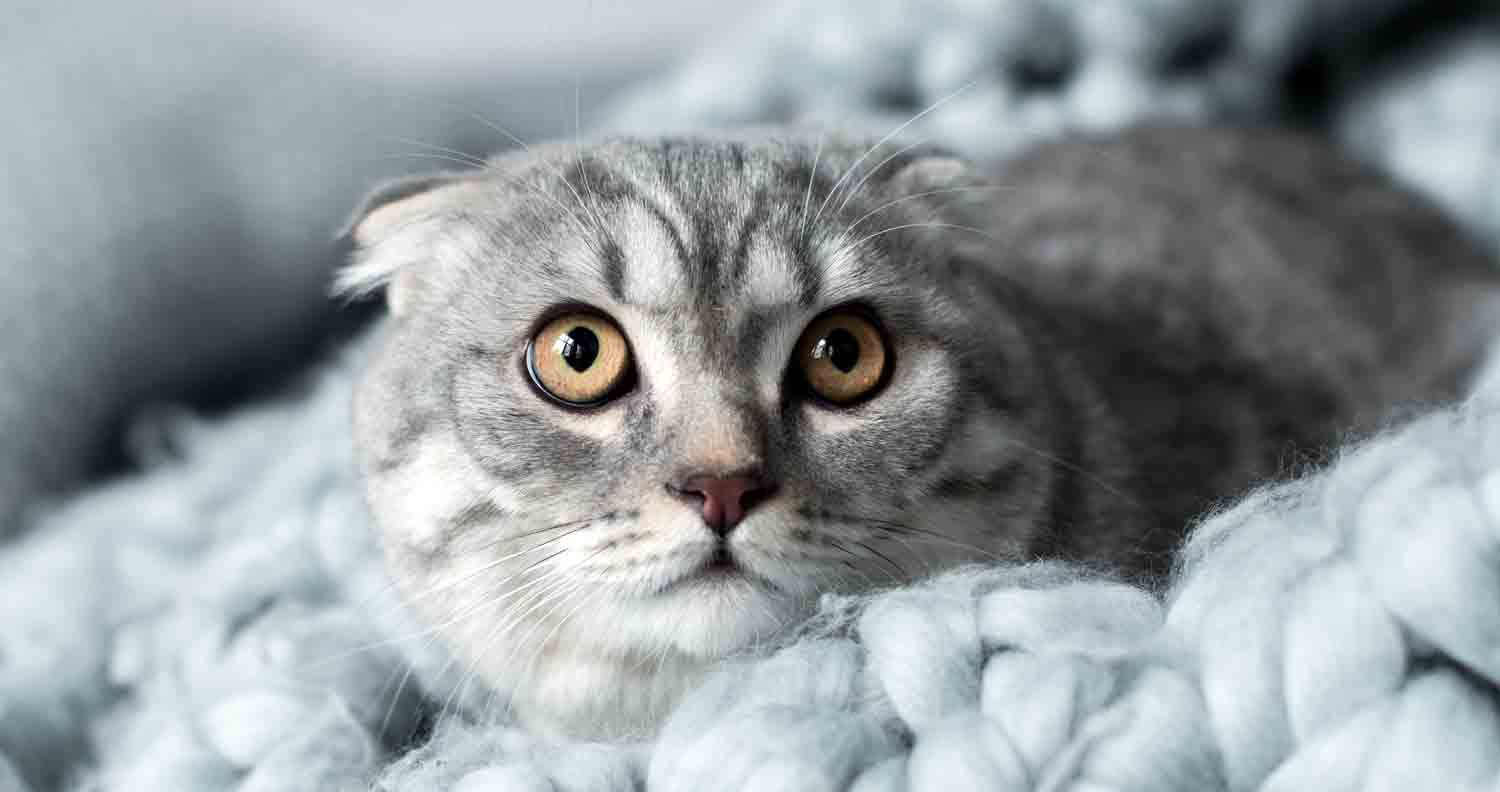
Stress in senior cats
Older cats find it much more difficult to deal with stress in cats, especially those suffering from a chronic or terminal disease.
If your senior feline is seriously ill, avoid exposing it to stressors. It needs a calm environment to thrive and recover.
That's why do not bring a new cat or dog into the house as they will disrupt the peace and may accidentally hurt their older mate while playing.
If possible, talk to your children and ask them not to make loud noises and treat the senior cat more carefully.
Is My Cat Stressed? The Verdict
Is my cat stressed? The verdict is in!
To be absolutely honest, many things can result in our sensitive buddies getting stressed. After all, we have all heard the expression, "scaredy-cat! It is treatable. In situations when your cat's anxiety seems to be getting out of hand, give your feline anti-anxiety medications.
Another important thing you can do is to reduce your own anxiety. Cats tend to copy the behavior of their cat owners.
So if your kitty sees you frustrated and anxious, it will become even more stressed. Just be aware of that.
There are many ways you can calm your cat down but, generally, peace and quiet, a good groom and a whole lot of fuss go a long way!
Read this next: Why Is My Cat Panting? (Do Cats Pant and Should I be Worried?)
Share:

